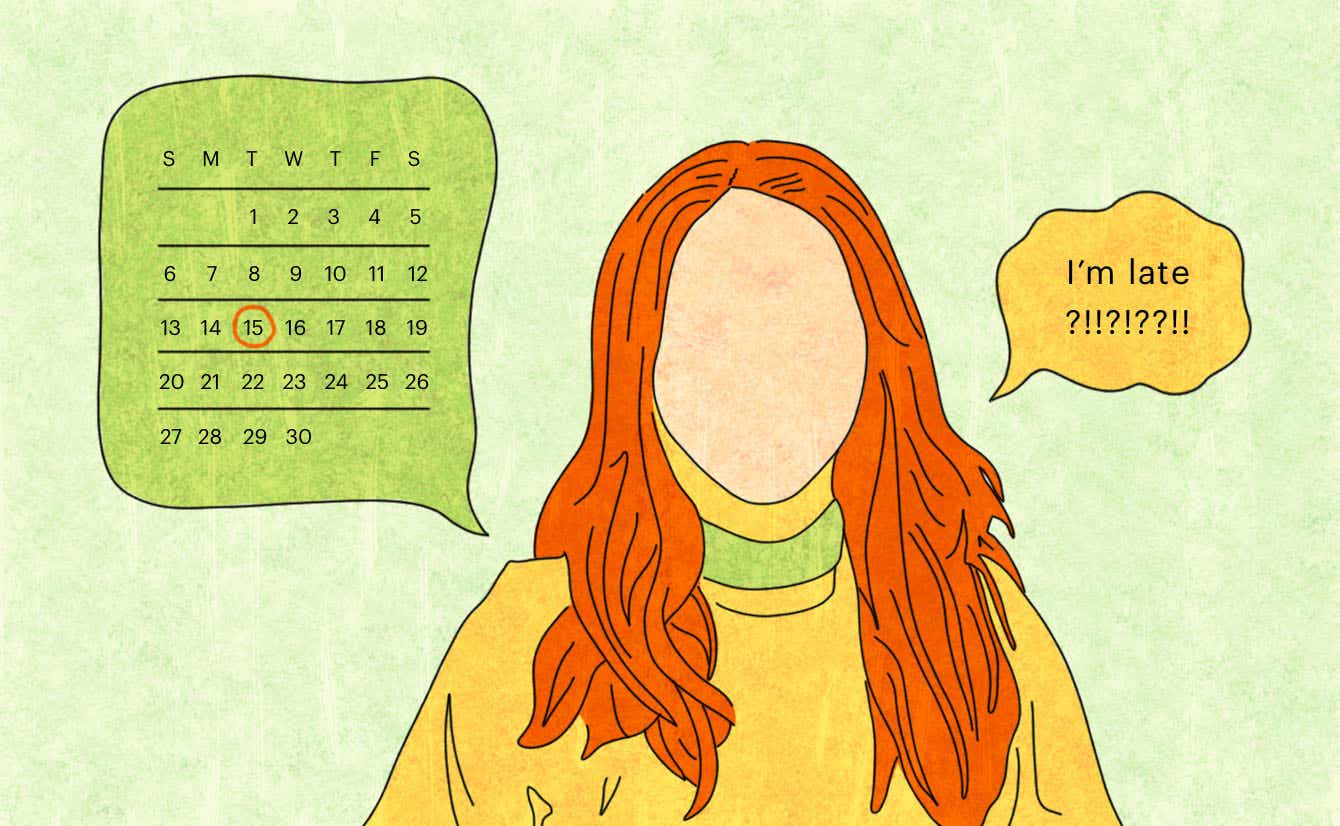The Covid-19 vaccine has indisputably changed life for the better, but some of us experienced less-than-pleasant short-term side effects after getting the shot. You’ve probably heard about the sore arm, headaches, maybe even chills… but some women have also noticed a change to their menstrual cycle post-vaccine. To find out what it all means, we called the one and only Dr. Rebecca Brightman, our favorite women’s health expert. (Her big takeaway? That menstrual irregularities are not a reason to avoid the vaccine.) Here’s her wisdom on how the vaccine’s affecting women’s cycles, and what that means for your health.
KCM: Aside from pregnant women, did the vaccine trials take into consideration any side effects that might specifically impact women?
Dr. B: The vaccine was fast-tracked for emergency use, so they studied the participants as a whole rather than breaking them down by specific demographics, like gender. There’s something to be said about the fact that women’s health issues are frequently not taken into consideration in clinical trials, and the study design did not separate out male vs female. I think retrospectively, data will be collected on these impacts— just look at what we learned about mammograms and lymph nodes in women after getting the vaccine.
We’ve been hearing anecdotal stories of women’s periods being impacted after getting the vaccine. Is there any truth to that?
This is an incredibly stressful time, and stress is one of the most common things that throws off menstrual cycles in young women. But there could be other underlying causes, including thyroid disease or pregnancy. I can’t say for certain that the vaccine causes menstrual irregularities, but I have seen an increase recently in calls about menstrual irregularities, both from women in perimenopause and from women of reproductive age. That includes cycles that are closer together than normal, missed cycles, cycles that last longer than expected, a much heavier flow, or unexpected spotting. We know that the vaccine causes an inflammatory response, so perhaps that inflammation could trigger both ovulation and menstruation in some women — it’s not clear. I think we’ll learn more down the line, but the most reassuring thing is that there’s no reason to believe this would impact future fertility. There’s also no reason this would have any lingering effects in someone whose cycle is usually regular. If menstrual irregularities persist beyond two cycles, reach out to your healthcare provider. And with any irregular bleeding, the first thing you absolutely have to do is rule out pregnancy.
In your anecdotal experience, have you seen women coming to you with this issue after the first vaccine dose, their second dose, or both?
I would say both. The overwhelming majority of my patients have received both vaccines by now, and I’ve only heard a handful of women say they’ve had menstrual irregularities, although there has certainly been an uptick. I’ve heard from women both who are on hormonal contraceptives and who are not, and I want to stress that there’s absolutely no reason to believe the vaccine has any impact on the efficacy of hormonal birth control.
You also have to remember that younger people — including women who are of reproductive age and menstruate — have more robust immune systems than older people. What that means is that young, healthy individuals are more likely to get symptoms after the vaccine, because their immune systems are working hard in response to the vaccine. Younger individuals are very resilient. So you could really say that having symptoms from the vaccine is a good thing — it means your immune system is working!
Can you clear up what we’ve been hearing about blood clots as a result of the vaccine? Is that something to worry about?
I’m so glad you asked me that, because I think there was some confusing messaging on this from the media. 6.8 million people received the Johnson and Johnson vaccine, and of those, six women got blood clots, one of which was fatal. So that incidence is less than one in a million. They all appeared in women in their reproductive years, because estrogen increases the risk of blood clots. Now compare that percentage to the likelihood of getting a blood clot from being on an oral contraceptive. Between three and nine women in every 10,000 who take oral birth control pills will develop a blood clot, and that number increases slightly for women who are pregnant. So both taking hormonal contraceptives and pregnancy carry a significantly higher risk of blood clots than this vaccine. The Johnson and Johnson vaccine would not have been rereleased if it was thought to be dangerous.
Written and reported by Emily Pinto
This interview has been edited and condensed









